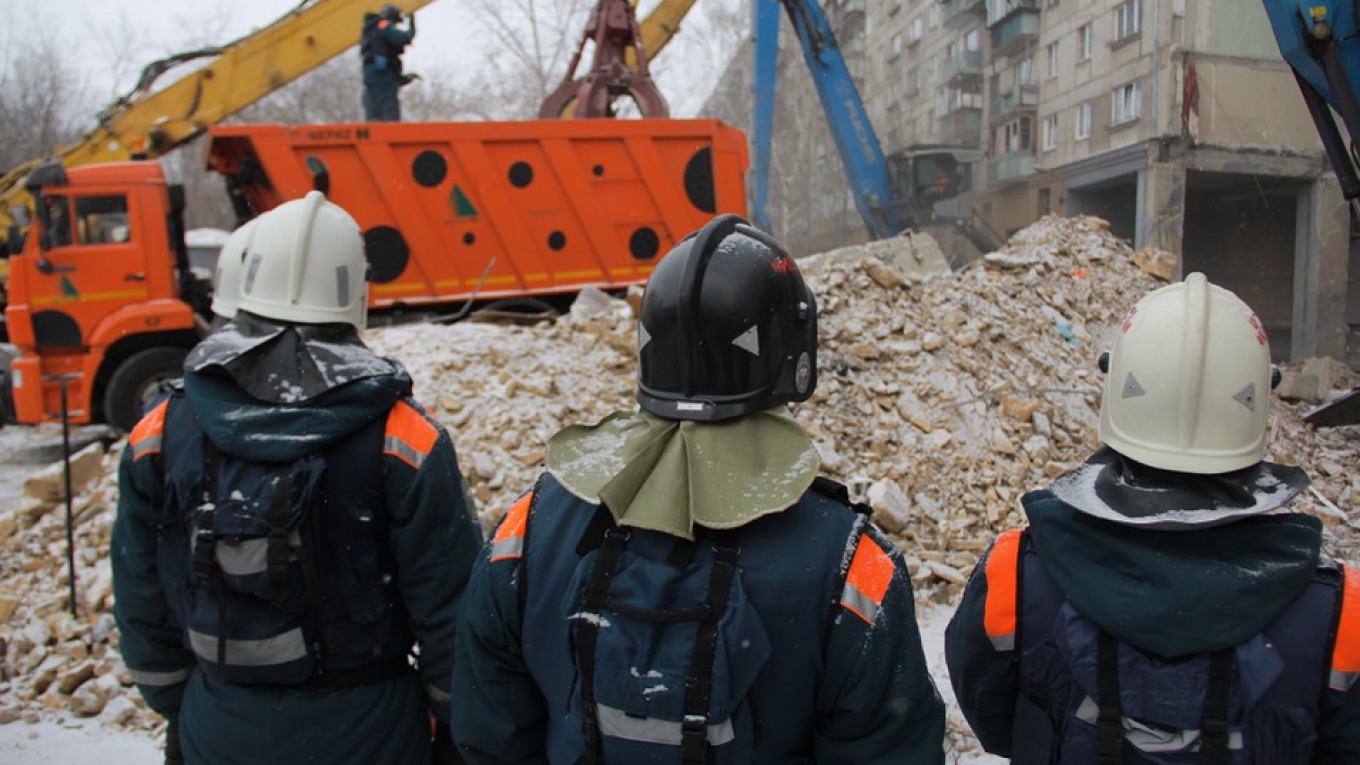Thirty-nine people have been killed in an apartment building collapse this week in the industrial Russian city of Magnitogorsk as emergency workers wrapped up a search operation.
The casualty count has progressively increased since the 10-story building fell on Dec. 31 in what the authorities described as a gas explosion. In a separate incident the next day that was also attributed to gas, a minibus explosion on the same street killed three unidentified people.
As of Thursday evening, rescuers have recovered 39 bodies from the rubble and said there were no more to be found.
“The last body was retrieved half an hour ago. The search and rescue operation is complete,” Deputy Emergency Situations Minister Alexander Chupriyan was quoted as saying by the state-run TASS news agency.
The ministry said at least six children were among the victims. Another six people were found alive, including an infant whose rescue was described as a New Year’s “miracle.”
The governor of Chelyabinsk region, where Magnitogorsk is located 1,700 kilometers east of Moscow, pledged 1 million rubles ($14,400) to the relatives of each victim.
Meanwhile, speculation has swirled around the successive explosions of the Soviet-era apartment block on Monday followed by the minibus on Tuesday. Footage shared by local media showed the minibus engulfed in a blaze accompanied by the sound of either explosives or gunshots.
Russia’s Investigative Committee responded to the first wave of speculation with an assertion late Tuesday that no traces of explosives had been found at the site of the building’s explosion.
The regional news website znak.com wrote later that a lack of official statements since then has fueled “various rumors and theories in Magnitogorsk and throughout the country.”
“All the while, znak.com’s sources in the Russian FSB in Moscow confirm the theory that it was a terrorist attack,” the website reported Thursday, using the acronym for the Federal Security Service.
A Message from The Moscow Times:
Dear readers,
We are facing unprecedented challenges. Russia's Prosecutor General's Office has designated The Moscow Times as an "undesirable" organization, criminalizing our work and putting our staff at risk of prosecution. This follows our earlier unjust labeling as a "foreign agent."
These actions are direct attempts to silence independent journalism in Russia. The authorities claim our work "discredits the decisions of the Russian leadership." We see things differently: we strive to provide accurate, unbiased reporting on Russia.
We, the journalists of The Moscow Times, refuse to be silenced. But to continue our work, we need your help.
Your support, no matter how small, makes a world of difference. If you can, please support us monthly starting from just $2. It's quick to set up, and every contribution makes a significant impact.
By supporting The Moscow Times, you're defending open, independent journalism in the face of repression. Thank you for standing with us.
Remind me later.






